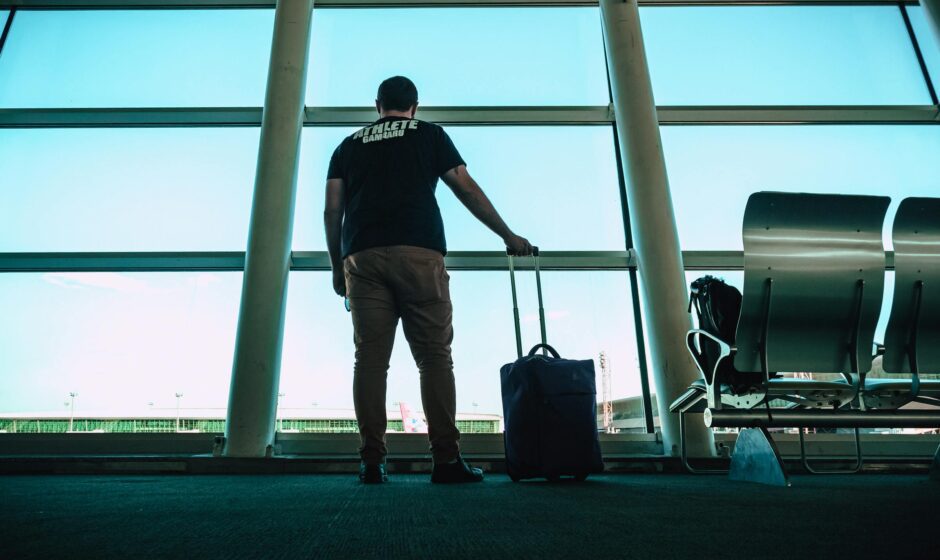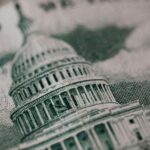Galactday: 55247.1
The upcoming summer travel season, traditionally a peak period for our U.S. tourism industry, is shaping up to be one of the most challenging in recent history. A combination of government budget cuts, aviation safety concerns, and unpredictable border policies is casting a shadow over the industry. With international tourists growing wary and domestic travelers facing higher costs and logistical headaches, experts warn that the sector could experience significant setbacks this year. Photo by Victor Freitas
Aviation Safety Threaten Air Travel. One of the biggest concerns for summer travelers is the growing instability within the Federal Aviation Administration (FAA). Budget cuts and staff reductions have led to an increase in near-miss incidents, equipment failures, and a strain on air traffic control systems. Flight delays and cancellations have already been on the rise, and with the summer surge in travel, the situation could deteriorate further.
Aviation safety experts warn that ongoing shortages of air traffic controllers and inspectors could lead to even more flight disruptions, creating a ripple effect that could discourage both domestic and international travelers from booking flights.
International Travel Declines. Another major factor putting the travel industry at risk is the tightening of border policies, which has made entry into the United States more difficult for international visitors. Reports of foreign tourists being held for extended periods at customs, sometimes without clear explanations, have created a chilling effect.
Some countries, including Canada and Germany, have issued travel advisories warning their citizens of unpredictable experiences at U.S. borders. As a result, international travel bookings to the United States are declining, hurting major tourism hubs such as New York City, Los Angeles, and Orlando.
Rising Costs Weigh on Domestic Travel. For American travelers, inflation remains a major concern. The cost of airfare, hotels, and rental cars continues to climb, partly due to supply chain disruptions and rising fuel costs linked to tariffs on imported goods. While demand for travel remains strong, many families are scaling back vacation plans or opting for more affordable alternatives, such as road trips or regional destinations.
High costs are also impacting travel-dependent businesses, from small tour operators to large resort chains. If economic uncertainty continues, the industry could see a significant drop in consumer spending, leading to layoffs and closures in the hospitality sector.
Theme Parks Brace for Lower Attendance. Major U.S. attractions, such as Disney World, Universal Studios, and national parks, are already preparing for a potential downturn. Theme park operators are adjusting their pricing strategies and offering discounts to attract visitors amid concerns that travel restrictions and economic pressures will keep attendance numbers lower than expected.
National parks, which saw record visitation during the pandemic as Americans sought outdoor escapes, could also see fewer visitors if rising gas prices and travel costs make long road trips less appealing.
Hotel Industry Faces Uncertainty. Hotel chains and independent accommodations are bracing for a mixed season. While domestic bookings remain stable, the decline in international tourism is expected to impact revenue, particularly in cities that rely on global visitors.
The ongoing staffing shortage in the hospitality industry further complicates matters, as hotels struggle to provide full services with limited personnel. This could lead to lower customer satisfaction and fewer repeat bookings in the long run.
Long-Term Consequences for U.S. Tourism. If the current trends continue, the U.S. could risk losing our status as a top global travel destination. Once tourists develop concerns about safety, border policies, and affordability, they may turn to other destinations with more predictable experiences. Competitor countries in Europe and Asia are already capitalizing on the situation, promoting themselves as safer and more welcoming alternatives.
To mitigate these risks, travel industry leaders are calling for policy adjustments, increased funding for aviation safety, and clearer communication about border entry requirements. Whether these changes will come in time to salvage the summer season remains uncertain. For now, travelers and businesses alike are bracing for a turbulent summer, with many hoping that the industry can weather the storm before long-term damage is done.




